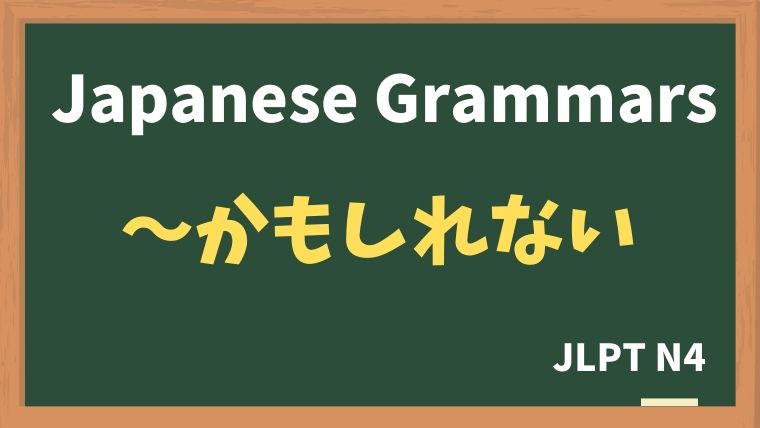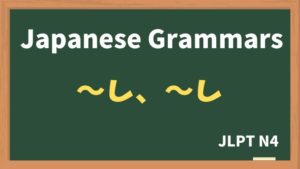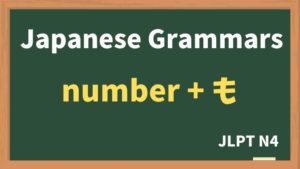
Explanation:〜かもしれない
fa-check-circleMeaning
Used to express possibility or uncertainty, similar to "might" or "maybe" in English. It indicates that the speaker is not certain about something but thinks it is possible. It is an uncertain guess with less basis for judgment than “”~でしょう / ~だろう”
fa-check-circleForm
V(plain form) + かもしれない
イA(plain form)+かもしれない
ナA(plain form)だ + かもしれない
N(plain form)だ + かもしれない
fa-check-circlePoints
- Possibility or Uncertainty: "〜かもしれない" conveys that something might happen, or a situation might be true.
- Degree of Certainty: This expression shows a low to moderate level of certainty. It does not express strong conviction but rather leaves room for doubt.
fa-check-circleJLPT Level
N4
Sample sentenes
来週 大きい 台風が 来るかもしれません。
The big typhoon might come next week.
午後から 雨が 降るかもしれないので、 傘を 持っていきます。
I will bring an umbrella because it might rain from the afternoon.
仕事が 忙しいので 今夜の パーティーに 参加できないかもしれない。
I might not be able to attend tonight’s party because I am busy at work.
週末 友達と 映画を 見るかもしれません。
I might watch a movie over the weekend with my friend.
先生は 英語が 上手だし、 目が茶色いし 日本人じゃないかもしれません。
He might not be Japanese because he is good at English and his eyes are brown.
Vocabulary
| Japanese | English |
| たいふう | typhoon |
| ごご | P.M. |
| あめが ふる | to rain |
| こんや | tonight |
| さんかする | to join / to attend |
| ちゃいろい | brown |
Comparison:"〜でしょう" vs. "〜かもしれない"
"〜でしょう" (probably) expresses a higher level of certainty compared to "〜かもしれない."
For example, "あめが ふるでしょう" (It will probably rain) indicates more confidence than "あめが ふるかもしれない" (It might rain).






